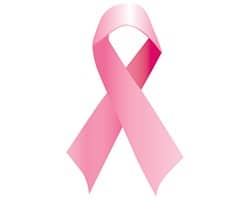Here at iCAD we would like this opportunity to recognize those who are battling breast cancer and those survivors and their families along with the companies that develop technology to detect and treat breast cancer.
This is a great time to be reminded of the importance of breast health and your annual mammogram. If your physician tells you have dense breasts from your mammogram, do you understand what that means and what action you should take?
Breast density is such an important issue that 28 states thus far have passed laws requiring that women receive dense breast notifications (DBNs) following their annual mammogram. These communications have the potential to help women better understand their breast density, their risk for developing breast cancer, and whether additional screening may be beneficial to them.
But the content of these notifications vary considerably from state and state and can be very confusing to you as the recipient of such notifications as they can contain language that is unclear and may be difficult to understand. In a survey of more than 1,000 women ages 35 to 70 in Virginia, one of the states where DBNs are required by law, only 25% of respondents said they were aware of the relationship between breast density and cancer risk.[i] Uniform standards for communications about breast density measurement results could help more women to understand what their breast density means and if they are at risk of developing breast cancer.
An estimated 40% of women have dense breast tissue that can mask the presence of cancerous tissue in standard mammography.[ii] Both cancerous tissue and dense breast tissue appear white on a mammogram, and radiologists often claim that diagnosing cancer in a woman with dense breasts is like “trying to find a snowman in a snowstorm.” That’s why annual mammograms are especially important for these patients. Unfortunately, breast density test results are often subjective and open to interpretation that can vary from one radiologist to another.[iii] The question remains “so how can you know for sure whether you have dense breasts, and what should these results mean to you?”
Here at iCAD we have an automated breast density solution, that assists radiologists identify dense breast tissue by providing consistent results that are accurate and reproducible. Our solution called; PowerLook® Density Assessment (iReveal®) analyzes digital mammograms, calculates a woman’s breast density, and determines the appropriate density category corresponding to BI-RADS standards – the system recommended by the American College of Radiology.
There are four categories of breast density according to the BI-RADS scale:
A The breasts are almost entirely fatty
B There are scattered areas of fibroglandular density
C The breasts are heterogeneously dense, which may obscure small masses
D The breasts are extremely dense, which lowers to sensitivity of mammography
Women with BI-RADS scores C or D are found to have dense breasts and may benefit from additional screening. If testing shows that you do have dense breasts, there are many steps you can take to help reduce your risk of breast cancer including maintaining a healthy weight, exercising regularly, limiting alcohol intake, eating healthy and not smoking.[iv]
Ask the questions, talk to your referring physician about the next steps you should take to ensure your personal breast health. These notifications are not meant to replace the dialogue between you and your doctor; they are meant to begin the discussion! Even if you don’t live in a State with such Law in place yet, ask your physician what your breast density score is, take control of your own breast health.
Schedule your next mammogram and encourage the women you love to do the same!
About iCAD:
iCAD is a global medical technology leader providing innovative cancer detection and therapy solutions. We work passionately to provide precise, powerful healthcare solutions expertly engineered to optimize operational efficiency, clinician confidence and patient outcomes. iCAD offers a comprehensive range of artificial intelligence and workflow solutions to support rapid and accurate detection of breast and colorectal cancers. For more information, visit www.icadmed.com or www.xoftinc.com.
[i] Guterbock, Thomas M. et al. What Do Women Know About Breast Density? Results From a Population Survey of Virginia Women. JACR, 2016; 0(0).
[ii] http://www.areyoudense.org/
[iii] Sprague BL, Conant EF, Onega T, Garcia MP, Beaber EF, Herschorn SD, et al. Variation in Mammographic Breast Density Assessments Among Radiologists in Clinical Practice: A Multicenter Observational Study. Ann Intern Med. [Epub ahead of print 19 July 2016] doi:10.7326/M15-2934
[iv] http://www.breastcancer.org/risk/factors/dense_breasts
